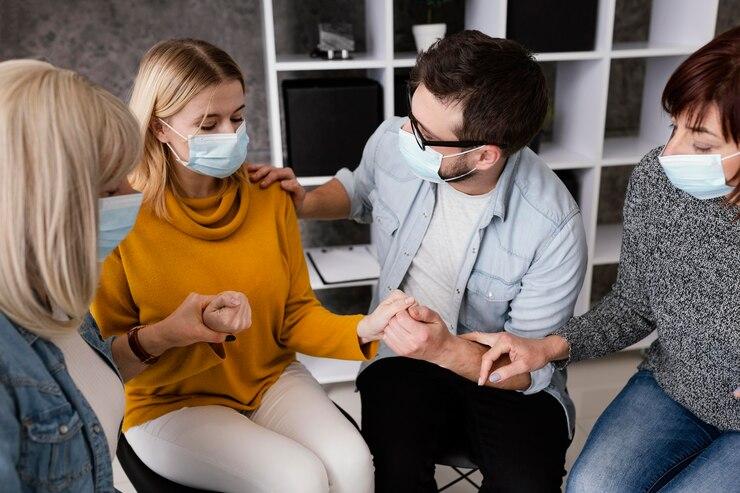ACE Screening in Orange County: A Critical Step Toward Healing Childhood Trauma

Every child deserves a healthy, safe, and supportive environment. But for many children in Orange County, experiences like family instability, abuse, neglect, or exposure to violence can leave lasting emotional scars. These are known as Adverse Childhood Experiences (ACEs)—and they affect far more families than many realize.
The good news? ACE screening in Orange County is helping to turn the tide. From clinics to classrooms, professionals are using this tool to identify trauma early, provide better mental health services, and ensure children get the support they need—especially in schools, where many young people spend most of their time.
What Are ACEs—and Why Do They Matter?
Adverse Childhood Experiences are traumatic events that occur before age 18. They include things like:
-
Physical, emotional, or sexual abuse
-
Domestic violence in the household
-
Divorce or parental separation
-
Substance abuse in the family
-
Having a parent with mental illness or incarceration
Children who experience ACEs are at a higher risk of developing mental health disorders, such as anxiety, depression, or post-traumatic stress disorder (PTSD). They are also more likely to suffer from chronic physical conditions later in life.
Understanding a child’s ACE history gives providers a critical advantage: instead of treating only the symptoms, they can begin to heal the root cause.
ACE Screening in Orange County: Taking Action Early
In recent years, Orange County has emerged as a leader in ACE screening and trauma-informed care. Health care providers, school counselors, and behavioral health specialists are incorporating ACEs screening into their routine services.
What Happens During an ACE Screening?
An ACE screening involves a short questionnaire that helps professionals understand how many and which types of adversities a child (or even adult) has experienced. It is:
-
Confidential and non-judgmental
-
Conducted with empathy and support
-
Used to tailor a care or treatment plan
Screening doesn’t label or shame—it empowers. It allows professionals to say: “Now that we understand what you’ve been through, we can help you heal.”
The School’s Role: Mental Health in Schools
For many children, school is the first place where behavioral and emotional challenges become visible. That’s why mental health in schools is so vital to long-term wellness.
Orange County schools are investing in:
-
On-site school psychologists and counselors
-
Mental health workshops for students
-
Peer mentoring programs
-
Emotional learning and coping skills classes
-
Partnerships with local mental health services
By recognizing the signs of trauma early, schools can take the first step in a child’s healing journey. A student who struggles with focus or anger may not be “difficult”—they may be hurt. With the right support, they can learn, grow, and succeed.
Trauma-Informed Mental Health Services
Mental health services in Orange County are evolving to meet the needs of children and adults affected by ACEs. The focus is now on trauma-informed care, which means treating patients with an understanding of how trauma affects the mind and body.
Core Principles of Trauma-Informed Mental Health Care:
-
Compassion and empathy
-
Respect and dignity
-
Trust and safety in clinical relationships
-
Empowerment and collaboration
Trauma-informed providers don’t just offer treatment—they create safe, healing spaces. Whether it’s therapy, counseling, or family intervention, the goal is not only to manage symptoms but to restore hope and resilience.
Why It Matters: Real Lives, Real Change
When a child is screened for ACEs, and that screening leads to real support, the outcomes can be life-changing:
✅ Improved academic performance
✅ Stronger family relationships
✅ Lower risk of depression and anxiety
✅ Reduced substance abuse later in life
✅ Better physical health
Families who once felt lost or ashamed finally feel heard, understood, and supported.
Equity in Care: Reaching All Communities
In order for ACE screening and trauma-informed care to be effective, it must be accessible to everyone. That means reaching underserved communities, addressing cultural barriers, and providing care in multiple languages.
Orange County is working toward this goal through:
-
Free and low-cost mental health services
-
Bilingual counseling programs
-
Outreach to immigrant and refugee families
-
School-based interventions in high-risk neighborhoods
This commitment to health equity ensures that no child is left behind, regardless of background.
Provider Resources: Support for Those Who Support Others
Healthcare professionals and educators can take advantage of tools offered by ACEs Aware, a statewide initiative. These include:
-
Provider training on ACE screening and trauma-informed care
-
Stress reduction guides for patients
-
Clinical toolkits for assessment and intervention
-
Support networks for ongoing education and collaboration
When professionals are trained and supported, the entire system becomes more effective, more compassionate, and more connected.
Conclusion: A Path Toward Healing and Hope
ACE screening in Orange County is more than a medical questionnaire—it's a movement. A movement toward earlier intervention, more responsive care, and a greater understanding of how childhood experiences shape our lives.
From mental health in schools to community-based services, Orange County is proving that when we listen to trauma, we can begin to heal it. One child at a time. One family at a time. One community at a time.
Because when we understand where people come from, we can better help them get to where they need to go.
- Art
- Causes
- Crafts
- Dance
- Drinks
- Film
- Fitness
- Food
- Jeux
- Gardening
- Health
- Domicile
- Literature
- Music
- Networking
- Autre
- Party
- Religion
- Shopping
- Sports
- Theater
- Wellness


